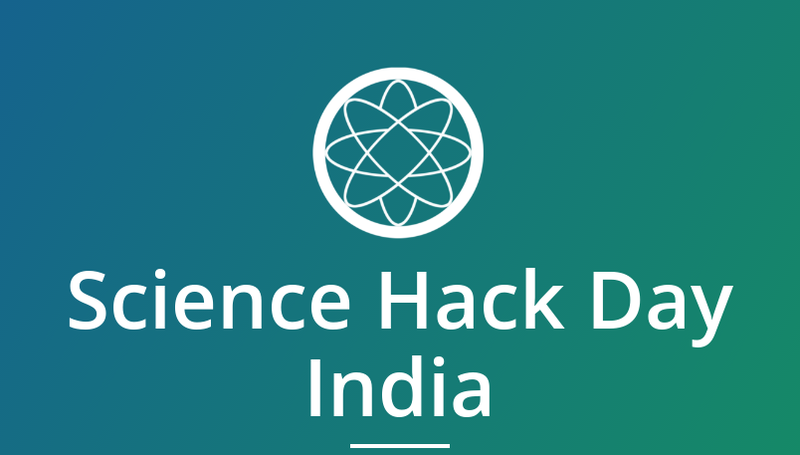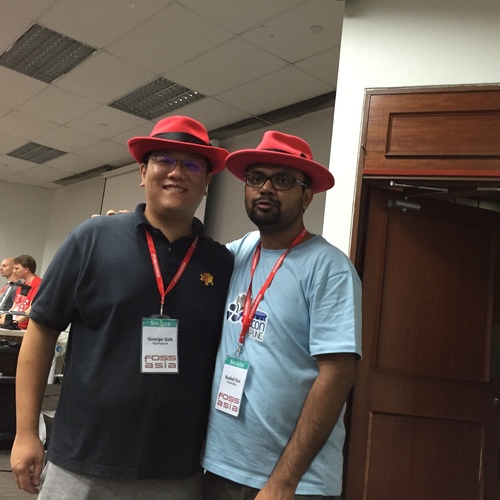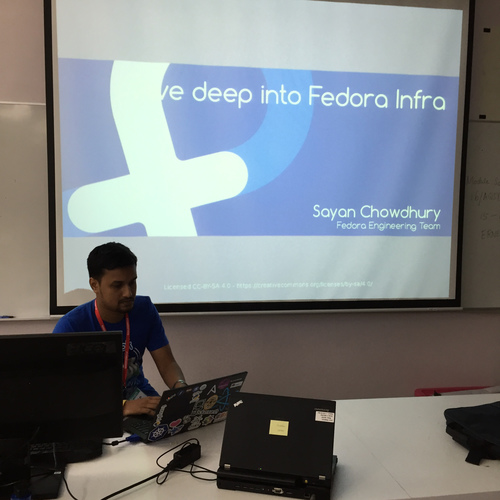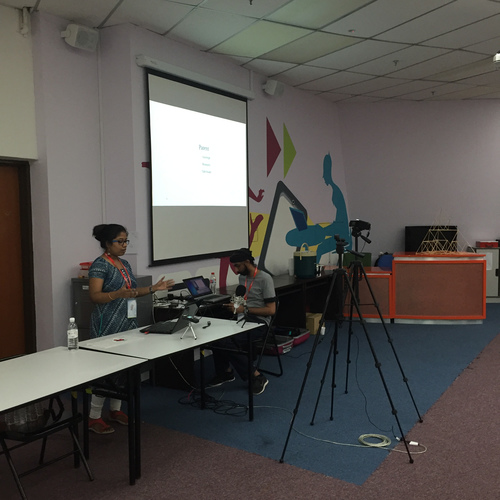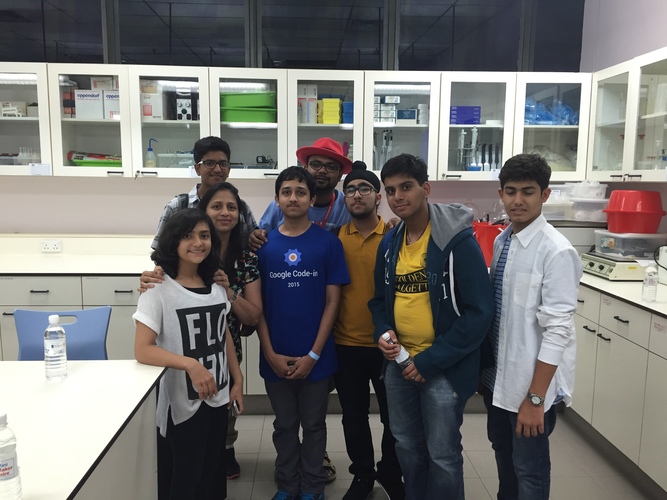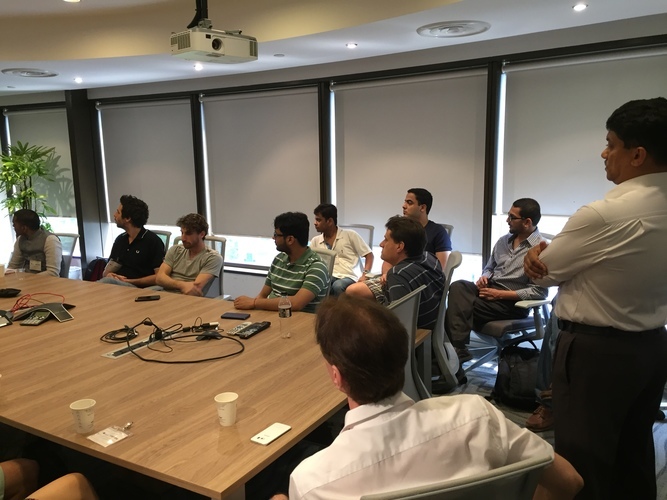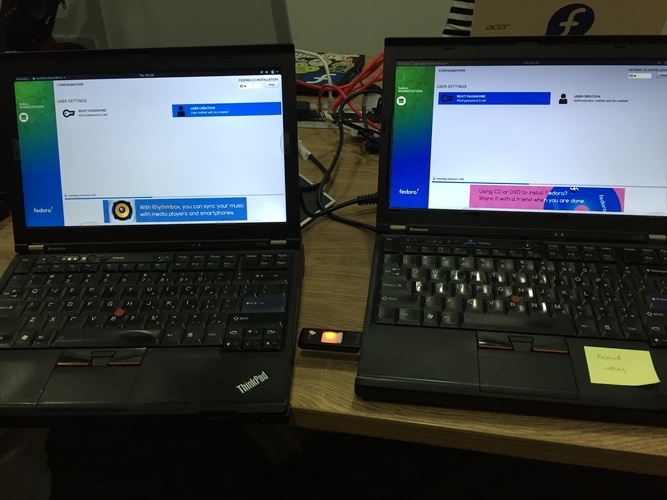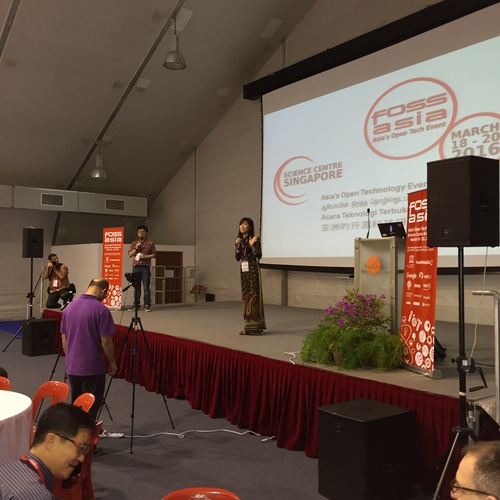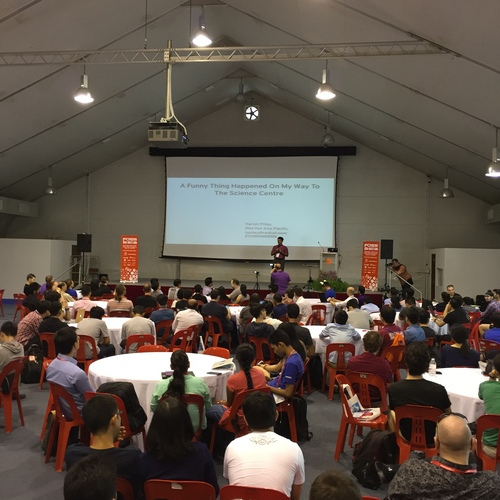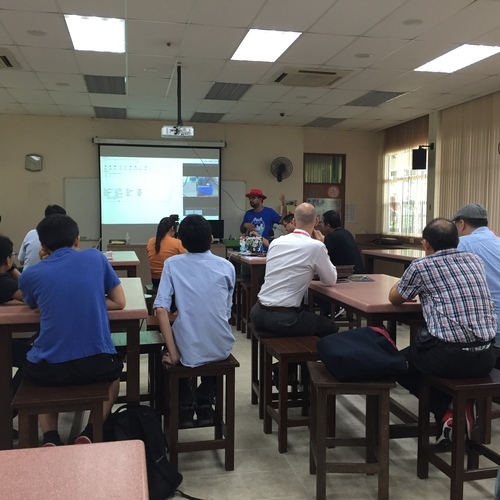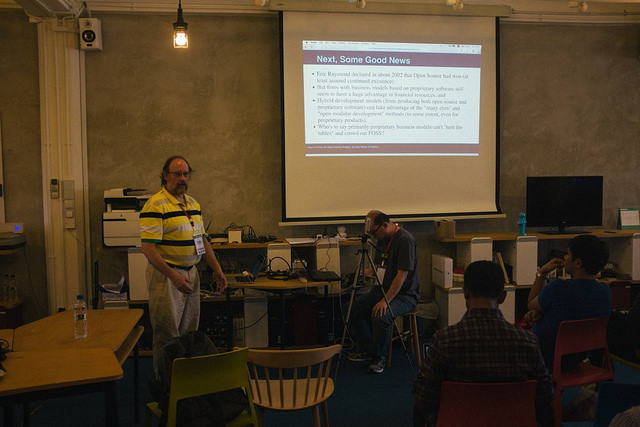Event report: FOSSASIA 2017
FOSSASIA 2017 reminded me of foss.in. After a long time, finally, a conference which has the similar aspects. Similar kind of tight organizing team, the presence of upstream communities from different locations. The participation from the local Singapore tech community along with Hackerspace Singapore is a serious boost. This was my 4th FOSSASIA conference, and also 3rd time in Singapore. I should thank Mario, Hong, and rest of the organizers to make this event a very pleasant experience.

This time Sayan booked an Airbnb for Anwesha and me. Saptak + Medo + Siddhesh + Praveen Patil, and Pooja Yadav, & Pravin Kumar were also staying in the same Airbnb in the Chinatown. The conference venue was the Singapore Science Center just like last year. Having the conference in the same place helps as the MRT route is very easy to reach there on time.
The day before the conference we had a speakers meetup in the Singapore Microsoft office. We also received a tour of the office, the person in-charge also explained about how are managing an office without permanent seating positions.
Day one
The conference started at 9:24AM (as Hong asked us to remember the time). I attended the talks from Harish Pillay and Chan Cheow Hoe. The idea of having the CIO of the country coming to the conference and giving a talk on Open Source is a great feeling. In 2015 we had Minister for Foreign Affairs, Mr. Vivian Balakrishnan giving a keynote (and talking about the NodeJS code he wrote). The way govt. is taking part in the local community events is something other countries should try to learn. Of course, Singapore has the benefit of being small in size.


Though the day was full of talks related to AI and machine learning, there were two talks I was waiting to attend. After lunch, the first one was from Bunnie Huang, where he spoke about making technology more inclusive. He talked about Chibitronics. Before I traveled to Singapore, I actually asked him to get a copy of his new book, The Hardware Hacker. I got my copy signed by him after his talk :) (I already finished the book while coming back to India, more on that later in a separate blog post). I also met Xobs and found a Chibtronics Love-to-Code board in his pocket :)

Later in the day, Frank Karlitschek gave his keynote titled Protecting privacy with free software. He brought up the original idea of the Internet being decentralized. The last talk of the day was a panel discussion on Artificial Intelligence.
Day 2 & Day 3
I spent most of the time in the Python track, and in between jumping around different floors of the venue meeting people. I personally had a two-hour workshop on MicroPython and NodeMCU. Anwesha was busy in the PyLadies table along with Pooja. I forgot to show the poster of PyCon APAC in the Python track :( But you can still submit talks and attend the conference. Sadly this will clash with another conference for me.

Anwesha had her talk on day 3, and her laptop's display decided to crash just before the talk. But finally the slides came back :) I also attended the SELinux workshop from Jason Zaman. He and few BSD friends convinced me to try out ZFS, and then build a new home storage with FreeNAS.
Now I have to wait for the next edition of FOSSASIA. It is a great place where I can meet my friends from different parts of the world, and share ideas :)
